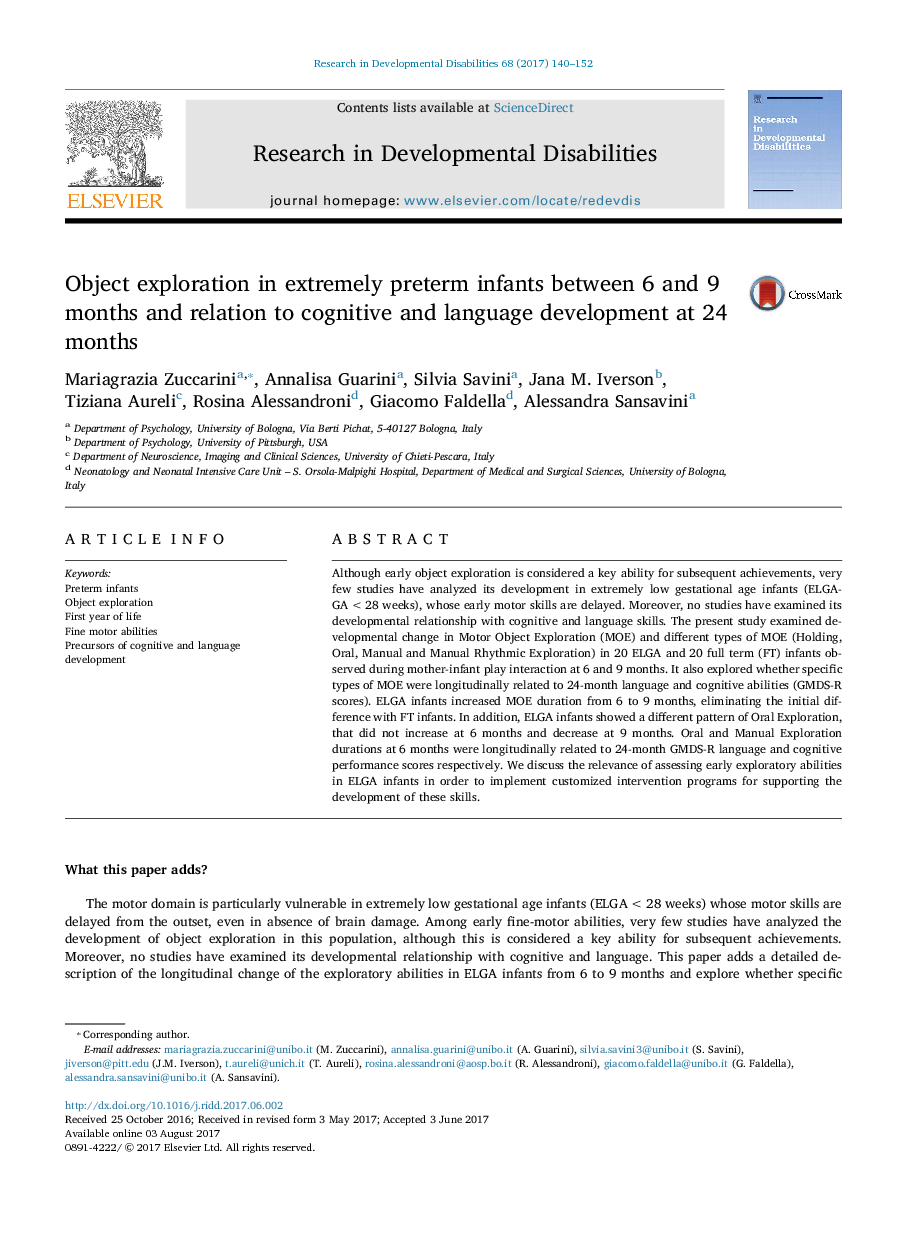ترجمه فارسی عنوان مقاله
اکتشاف اشیاء در نوزادان بسیار زودرس 6 تا 9 ماهه و ارتباط با توسعه شناختی و زبان در 24 ماهگی
عنوان انگلیسی
Object exploration in extremely preterm infants between 6 and 9 months and relation to cognitive and language development at 24 months
| کد مقاله | سال انتشار | تعداد صفحات مقاله انگلیسی |
|---|---|---|
| 107123 | 2017 | 13 صفحه PDF |
منبع

Publisher : Elsevier - Science Direct (الزویر - ساینس دایرکت)
Journal : Research in Developmental Disabilities, Volume 68, September 2017, Pages 140-152
ترجمه کلمات کلیدی
نوزادان نارس، اکتشاف اشیاء، سال اول زندگی توانایی های حرکتی عالی پیشگامان توسعه شناختی و زبان،
کلمات کلیدی انگلیسی
Preterm infants; Object exploration; First year of life; Fine motor abilities; Precursors of cognitive and language development;

